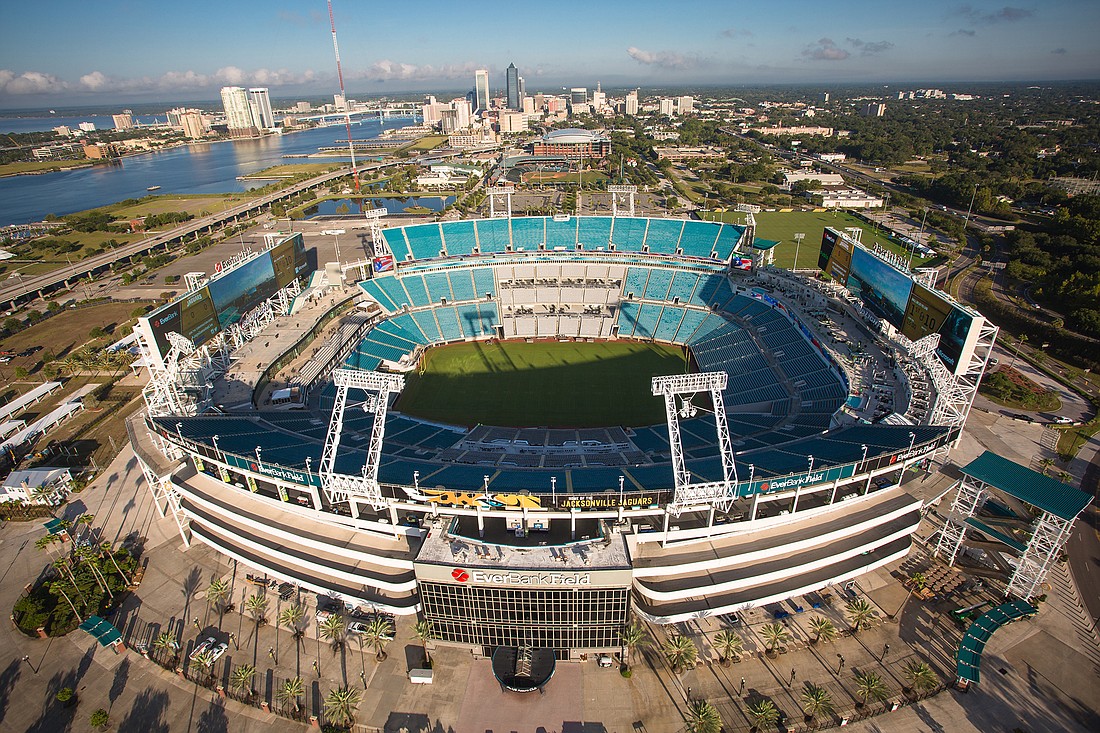
A bill moving through the Florida House of Representatives could alter lease agreements between professional sports franchises and local municipalities.
Introduced Aug. 30 by Rep. Bryan Avila, R-Hialeah, House Bill 13 would prevent a sports franchise from making improvements to publicly owned facilities or property it leases from the state or a local government.
That would include renovations or any other construction work.
Also, lease agreements made after July 1, 2018, would require that teams pay any outstanding debt the city or state incurred for renovations or updates to a facility if the team were to stop using it.
The bill moved through the House Government Accountability Committee on Tuesday by a 15-6 vote.
Jacksonville-area Rep. Jay Fant, a Republican, voted against the bill in committee. He said Wednesday he felt the legislation was an attack on home rule.
“It’s just another way for the state to take away the ability of local government to negotiate agreements or dictate how they choose to prioritize spending,” Fant said.
Fant said he thinks the bill would create unnecessary obstacles for cities trying to attract major or minor league sports franchises.
“They would look at Florida, this law in particular, and I think they’d pass on us,” he said.
Publicly financed stadium deals and the subsequent renovation of those facilities have come under scrutiny in recent years amid rising costs.
In the National Football League, the Chargers moved from San Diego to Los Angeles this season after the city did not build the team a new stadium.
Voters there also defeated stadium measures.
The Oakland Raiders also planned to move to Las Vegas after the city did not build a new stadium.
Fant said he believes the bill is a reaction to costly deals cut by some municipalities, particularly one Miami-Dade County struck with the Miami Marlins Major League Baseball team to build Marlins Park, which opened in in 2012.
The cost to build Marlins Park is estimated between $550 million and $650 million.
The Marlins covered about 25 percent, with Miami-Dade selling $500 million in bonds to cover the rest.
According to the South Florida Sun-Sentinel and The New York Times, paying back those bonds could eventually cost taxpayers more than $2.4 billion.
“To me that sounds like a local government dropping the ball, not the state Legislature,” Fant said. “Why should everyone else get punished because of one bad deal?”
Public financing to build or renovate sports stadiums is not uncommon in Florida.
The Jacksonville Jaguars agreed to 30-year lease in 1993 to operate EverBank Field.
Since then, the city and the Jaguars have upgraded the stadium several times since it was originally renovated to accommodate an NFL team in the early 1990s.
The city has spent roughly $90 million on upgrades in 2013, 2015 and 2016, as well as the initial $144 million spent to renovate the former Gator Bowl to accommodate the team in the 1990s.
A team spokeswoman declined to comment.
“I don’t think those improvements would’ve been possible if this was a law on the books back then,” Fant said.
The bill will be added to the House calendar for debate when the legislative session begins Jan. 9. A similar bill was introduced and failed last legislative session.